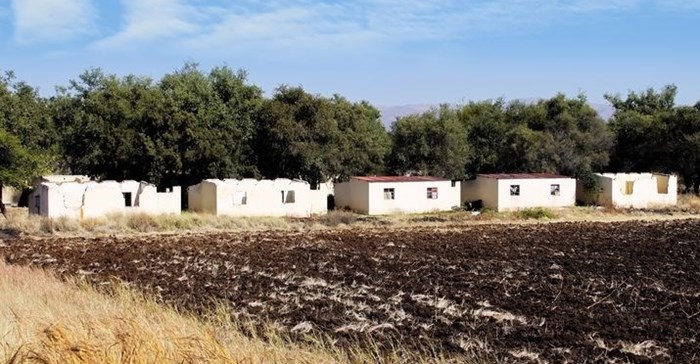
Related
Top stories





Marketing & MediaAds are coming to AI. Does that really have to be such a bad thing?
Ilayaraja Subramanian 8 hours

More news


















The need for such a study, presenting policy makers with credible information, is a long-felt need. Following public hearings in Parliament in 2011 on evictions and the plight of farmworkers and farm dwellers, the then chairperson of the Portfolio Committee on Rural Development and Land Reform, Mr Stone Sizane called for independent research into conditions on farms and the underlying causes of evictions from farms.
The International Labour Organisation responded to the call and funded a research project into this sensitive matter. A research proposal was formulated with the help of an oversight committee consisting of representatives from various government departments, NGOs, civic organisations and organised agriculture. The proposal was then put out to tender and the tender was eventually awarded to a consortium of universities.
Desktop studies were done, followed by some field research done at ten case study sites. Case studies were chosen to gauge to what extent a range of factors had an impact on labour management strategies. These included the labour intensity of different commodities, the seasonality of farming operations, the ability of various sub-sectors to mechanise, and their exposure to international markets. The objectives of the proposed research were:
a. To describe the most important trends in the living and working conditions of farm workers;
b. To describe the key processes driving labour market restructuring in agriculture, including the movement of workers off farms; and
c. To provide an analysis of the underlying structural conditions and drivers of these trends.
• Market deregulation and trade liberalisation were elements of an approach by the state to withdraw from the sector.
• Trade liberalisation has also deepened South African producers' integration into global food value chains. It has done so at a point in time when international (and local) retail power has become increasingly consolidated and more powerful. The combined processes of market deregulation and supermarket consolidation have served to weaken producers' collective bargaining power in the marketplace. As a result, some of the agricultural value chains, which were previously controlled by South African producers, are now controlled by international retailers. In the process, most South African producers have become price takers.
• There has been increased regulation of the sector through legislative intervention, particularly in the spaces of labour relations and land reform.
• As the result of the combined pressures outlined above, producers have adopted various coping strategies. Where labour has been a major cost component of their business, workforces have been restructured, leading to an overall decrease in the total of workers employed, but also increased casualisation and externalisation.
• The dominant producer strategy to cope with the economic pressures has been to expand production to benefit from economies of scale.
• Migrant labour is well established in certain areas and on the rise in others.
• There has been a huge migration to rural towns and local government is ill-equipped to deal with the influx.
• Legislation and policy aiming to provide farm workers with housing and security of tenure appears to be hugely out of step with a growing, off-farm employee population.
• Regarding farm workers' working conditions, the study found a fairly high rate of compliance in terms of granting of key rights. There is, however, a trend of lower compliance in the case of non-permanent workers.
The study draws together a huge amount of information on the farming sector from census data, agricultural surveys, quarterly labour force surveys and other studies. These include information on the number of commercial farming units, the type of farming, employment statistics, racial, age and gender composition of the labour force in the sector, educational levels of workers, remuneration and more. As such it is a very useful reference document on the sector.
Agri SA welcomes objective research on the sector. It acknowledges that there are problems that need to be addressed. Some of these are within the power of producers and their organisations to address, but others will require a joint effort by all stakeholders and a value chain approach as suggested by the researchers.

Agri SA has already committed itself to participating in the development of a Social Accord aimed at enhancing respect for human rights, improving productivity, enhancing compliance with labour and health and safety legislation, promoting dialogue between producers and employees and advancing transformation in commercial farming areas.
Agri SA is participating in the Vulnerable Workers' Forum chaired by the deputy president, Mr Ramaphosa and is busy developing its own internal set of guidelines seeking to strengthen, protect, advance and develop the physical, social, educational, cultural, spiritual, intellectual, occupational, environmental and economic wellness of farming communities.
Ultimately such a social accord is the collective responsibility of all stakeholders active in farming communities and it should progressively and systematically seek to continuously minimise the impact of a range of social and economic risk factors that impact negatively on the wellness of farmworkers and their families and communities.